Session
Business and Finance in the Face of a Changing Climate: Risks and Opportunities
The Paris Agreement entered into force on 4 November 2016. Since that time, national governments together with various stakeholders have initiated the process of adopting long-term GHG emission strategies and actions towards decarbonisation. However, climate risks continue to increase on a global scale, underlining the urgency of recognising climate change as both an economic and human security issue.
In this context, a growing number of large businesses and financial investors have endorsed climate interventions, ranging from putting a carbon price on business operations, disclosure on climate risks and opportunities as recommended by the Task Force on Climate-related Financial Disclosures (TCFD), and supporting divestment from fossil fuels, among others.
At the same time, there are notable examples of governments from emerging economies, such as China and India, working in partnership with the private sector on efforts to promote a decarbonised and sustainable future. Many industrialising countries are also following suit.
In this session, international experts, together with key actors from the business and financial sectors will gather to discuss global trends with regard to climate risks and opportunities, share lessons on integrating climate into business strategies (including associated benefits and challenges), and recommend policy options/considerations for promoting enabling environments aimed at encouraging a shift in investment practices.

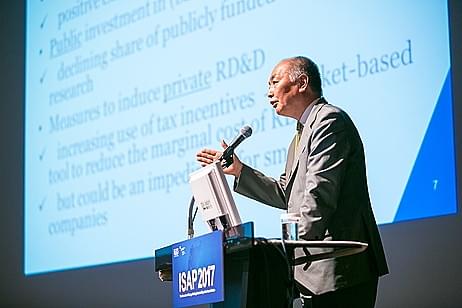
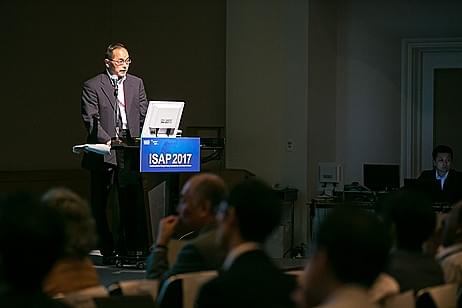
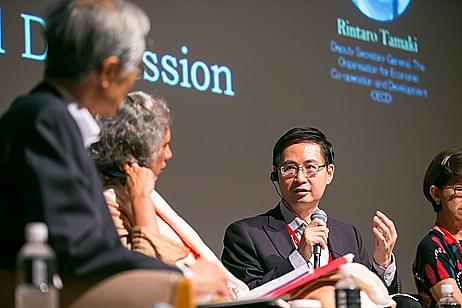
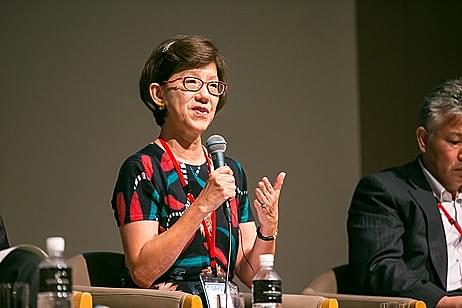
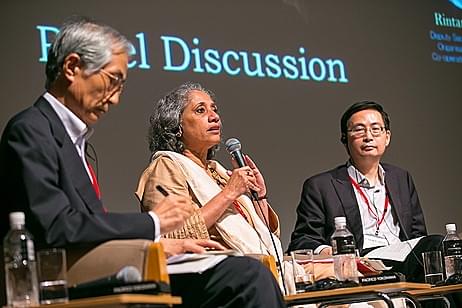
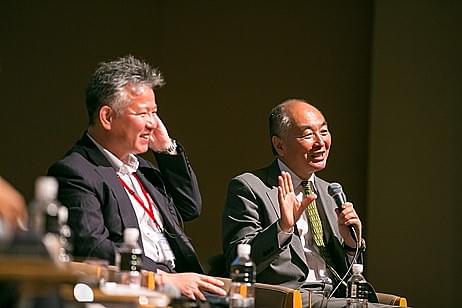
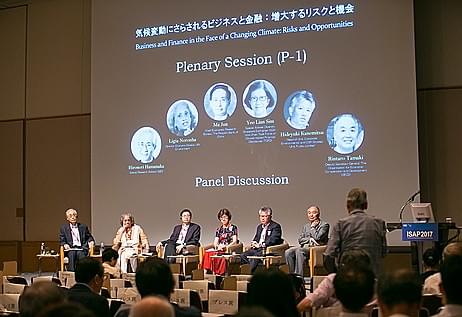
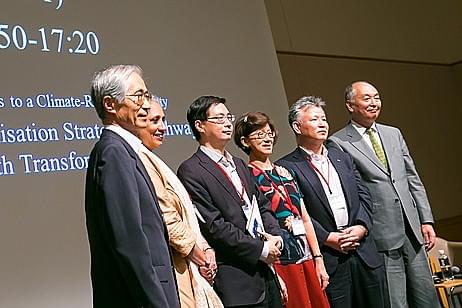

SSS
Rintaro Tamaki
Deputy Secretary-General, The Organisation for Economic Co-operation and Development (OECD)

SSS
Ligia Noronha
Director, Economy Division, UN Environment
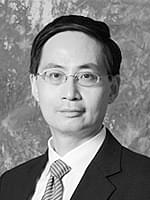
SSS
Ma Jun
Chief Economist, Research Bureau, The People's Bank of China
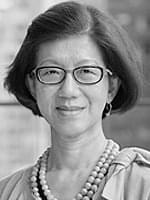
SSS
Yeo Lian Sim
Special Adviser Diversity, Singapore Exchange (SGX) / Vice Chair, Task Force on Climate-related Financial Disclosures (TCFD)
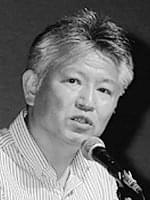
SSS
Hideyuki Kanemitsu
Head of Unit, Corporate Environmental and CSR Strategy Unit, Fujitsu Limited

Framing Presentation
Naoki Mori
Executive Coordinator, Strategic Management Office, IGES
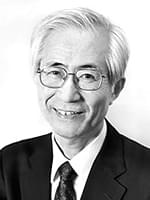
Moderator
Hironori Hamanaka
Special Research Advisor, IGES

SSS
Rintaro Tamaki
Deputy Secretary-General, The Organisation for Economic Co-operation and Development (OECD)
Mr. Tamaki graduated in 1976, L.L.B. from the University of Tokyo. He was appointed Deputy Secretary-General of the OECD on August 1, 2011. His portfolio includes the strategic direction of OECD policy on Environment, Development, Green Growth, Financial Affairs and Taxes. During his prominent 35-year career at the Japanese Ministry of Finance, he has worked on various budget, taxation, international finance and development issues. He worked as part of the OECD Secretariat from 1978 – 1980 and from 1983 – 1986. In 1994 he was posted to the World Bank as Alternate Executive Director for Japan and in 2002 as Finance Minister at the Embassy of Japan in Washington DC. He then became Deputy Director-General (2005), before becoming Director-General (2007) and subsequently Vice-Minister for International Affairs (2009) at the Ministry of Finance.

SSS
Ligia Noronha
Director, Economy Division, UN Environment
Ligia Noronha is a scientist with over 25 years international professional experience in promoting environmental sustainability through technology, industry, and economic policy.
She was appointed in April 2014 as Director of the UN Environment Programme (UN Environment), Division of Technology, Industry and Economics - now known as Economy Division. Since then, her work has focused on guiding UN Environment’s Economy Division in delivering its mandate of promoting environmental sustainability through technology, industry, and economic policy, and has led the implementation of three of UN Environment seven sub-programmes - climate change, chemicals and waste, and resource efficiency.
Ms. Noronha’s prior experience spans a wider-range of bodies in both the private and public sectors. Prior to joining UN Environment, she served in The Energy and Resources Institute (TERI) as Executive Director of Research Coordination and as Director of the Resources, Regulation and Global Security Division. Her work focused on conducting research for sustainable development of India and the Global South.
From 2005 to 2011 she served as Secretary of the Asian Energy Institute focusing on policy research on energy, resources, climate change and sustainable development issues. From 2005 to 2009, Ms. Noronha served as Coordinator of the Renewable Energy and Energy Efficiency Partnerships (REEEP), South Asia. In 2004 and 2005, she was Team Leader of Ecosystem Approaches to Human Health at the International Development Research Centre (IDRC). Ms. Noronha has served on the National Security Advisory Board of the Government of India focusing on the linkages between the environment and security. She has also served on several expert committees of the Government of India and Goa, including the Expert Committee on Climate Change, the Western Ghats Ecology Expert Panel, and the Task Force on Natural Resources of the Commission on Centre State Relations.
In addition, she has been a member of the Planning Board of the Government of Goa and member of the Goa Jubilee Development Council, a member of Shell International’s prominent External Review Committee on Sustainability Reporting. She was also a member of the Global Assurance Group’s project which examined how the mining and minerals sector could contribute to the global transition to sustainable development.
Ms. Noronha has published nationally and internationally including in peer-reviewed journals on emerging issues relevant to energy and resource security, climate change, India's environmental and coastal policy, responsible mining, and resource federalism. She has also co-edited a number of books including India’s Energy Security. From 2009 to 2011, she was a Visiting Senior Fellow at the University of Sydney-based Centre for International Security Studies (CISS).
Ms. Noronha is an Indian national and her qualifications include a Masters in Economics from the University of Bombay, a Masters in Sea Use Law, Economics, and Policy, and a PhD from the London School of Economics. Ms. Noronha speaks English, Portuguese etc.

SSS
Ma Jun
Chief Economist, Research Bureau, The People's Bank of China
Dr. MA Jun is Chief Economist at the People’s Bank of China (PBC)’s Research Bureau, and Chairman of Green Finance Committee under China Society of Finance and Banking. Before joining the PBC in early 2014, he worked for 13 years at Deutsche Bank, where he was Managing Director, Chief Economist for Greater China, and Head of China and Hong Kong Strategy. Prior to joining Deutsche Bank in 2000, he worked as public policy specialist, economist and senior economist at the International Monetary Fund and World Bank from 1992-2000. From 1988-1990, he was a research fellow at the Development Research Center of China's State Council.
Dr. Ma has published eleven books and several hundred articles. His main research interests include macroeconomic forecasting and policies, structural reforms, as well as environmental economics. His most recent book is on Economics of Tackling Air Pollution in China. Since mid 2015, he has led the PBOC working group on green finance policy, which proposed 14 policy measures for establishing a “green finance system” in China.
Dr. Ma has been frequently rated at the top in his fields by various investor polls. His accolades include the No.1 Asia economist and the No.1 China analyst in Institutional Investor’s survey for four years in a row (2009-2012), as well as many No. 1 rankings in China economics and China strategy research by Asiamoney, Thomson Reuters, and Sohu Finance.
Dr. Ma received his Ph.D. in Economics from Georgetown University in 1994, and his master's degree in Management Science from Fudan University in 1988. He is a member of China Finance-40 Forum, Deputy Head of Green Finance study group of China Council of International Co-operation of Environment and Development, a Director of Eco-Finance Research Center at People’s University, Co-Chair of Green Finance Dialogue Forum at China Finance and Economics University, member of the academic committee of International Finance Forum, member of World Economic Forum’s Agenda Council on International Monetary System, and Adjunct Professor at Fudan University.

SSS
Yeo Lian Sim
Special Adviser Diversity, Singapore Exchange (SGX) / Vice Chair, Task Force on Climate-related Financial Disclosures (TCFD)
At the Singapore Exchange (SGX) Lian Sim has led the introduction of sustainability reporting for listed companies, focused on opportunities and risk management. Reporting was first voluntary in 2011 and now a ‘comply or explain’ rule effective end 2017. Lian Sim also participates as a Vice Chair of the FSB’s Task Force on Climate-related Financial Disclosures. Lian Sim was previously Chief Risk and Regulatory Officer, with responsibilities relating to listed companies, member brokers and trading surveillance. Risk management covered financial risk of clearing and settlement and oversight of enterprise risk. Before joining SGX, Lian Sim’s career was at the Monetary Authority of Singapore in various roles including managing reserves, implementing exchange rate policy and regulating the capital market. She is a graduate of the University of Singapore and the London Business School.

SSS
Hideyuki Kanemitsu
Head of Unit, Corporate Environmental and CSR Strategy Unit, Fujitsu Limited
Joined Fujitsu Limited in 1987. Developed some technologies for wafer process for 15 years as an engineer in Semiconductor Development Division. Moved to Corporate Environment Strategy Unit and promoted environmental activities such as energy-saving at factories, facilities and data centers accross Fujitsu group. Between 2008 and 2012, transferred to Brussel office. Researched European environment policies and carried out lobbying activity across Europe.
Vice President of Green Management Division of Corporate Environmental Strategy Unit in 2013, Vice President of Green Business Innovation Division in 2015, and Head of Corporate Environmental Strategy Unit in 2016.
